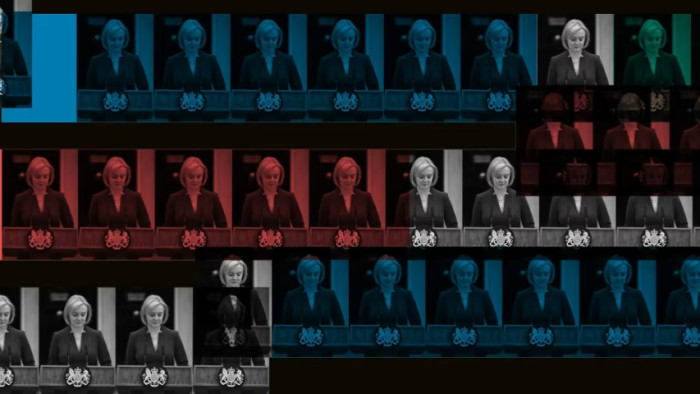Politics class: The inside story of Liz Truss’s disastrous 44 days in office

Roula Khalaf, Editor of the FT, selects her favourite stories in this weekly newsletter.
This article picked by a teacher with suggested questions is part of the Financial Times free schools access programme. Details/registration here.
Specification:
AQA Component 1, Section 3.1.1.3: The Prime Minister and Cabinet: two examples that demonstrate the power of the Prime Minister and cabinet to dictate events and determine policymaking
Edexcel Component 2, Section 3.3.2: The powers of the Prime Minister and the Cabinet to dictate events and determine policy
Click to read the articles below and then answer the questions:
The inside story of Liz Truss’s disastrous 44 days in office
Background: what you need to know
A long read which provides an in-depth exploration of the causes of Liz Truss’s downfall last autumn. It is a good example of the old saying that ‘journalism is the first rough draft of history’.
The article explains how Truss and her Chancellor, Kwasi Kwarteng, embarked on a programme of unfunded tax cuts which caused a disastrous reaction in the markets and shortly afterwards brought down the government. It highlights the flawed governing style of a leader who rejected advice from beyond her own narrow circle and failed to grasp what was economically and politically feasible.
Question in the style of AQA Politics Paper 1
‘The UK Prime Minister possesses limited power to control events and shape policy.’ Analyse and evaluate this statement.
In your answer you should draw on material from across the whole range of your course of study in Politics. [25 marks]
Question in the style of Edexcel Politics Paper 2
Evaluate the argument that UK Prime Ministers have limited power to control events and policy.
In your answer you should draw on relevant knowledge and understanding of the study of Component 1: UK politics and core political ideas. You must consider this view and the alternative to this view in a balanced way. [30 marks]
TIP: The shortlived Truss premiership is a good example of the power of the Prime Minister to bring about a significant change of policy direction — but also of the powerlessness of the office, faced with adverse economic forces and a collapse of confidence. In answering the question, you should also discuss some examples of Prime Ministers who were more successful in implementing change. An interesting contrast would be with Truss’s idol, Margaret Thatcher, who took a more considered approach to economic policymaking on taking office.
Graham Goodlad, Portsmouth High School
Comments